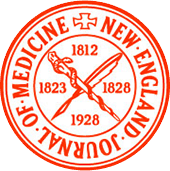In last week’s post, we went into detail about why we recommend that all kNew Health members have their B12 and folate levels tested.
This week’s article continues on the theme of B-Vitamin testing, with a look at why everyone should have their homocysteine levels checked—for metabolic, heart and genetic health.
What the heck is homocysteine (and why should you care)?
Homocysteine is a non-essential amino acid created by the body as a by-product of a critical conversion process called methylation. It all begins with an essential amino acid called methionine*.
*Non-essential amino acids, like homocysteine, are made by the body and do not come from food. Essential amino acids, like methionine, must come directly from food and are often converted into non-essential nutrients.
Once consumed, methionine can be isolated from our dietary proteins (with good digestion) and, via methylation*, can be transformed into homocysteine and then downstream into usable cysteine.
*Methylation is a metabolic process involving amino acids, B-vitamins and other nutrients which affects genetic expression, energy, nutrient conversion, metabolism, antioxidant capacity, detoxification, hormone balance and much more.
As with so many other substances in the body, homocysteine can build up if our methylation process is impaired or blocked.
Excess homocysteine on its own is toxic to the body, but a build-up also denies the body the usable cysteine it needs for other key functions.
Homocysteine levels are representative of many aspects of health, including:
- How your body uses B-vitamins, particularly B6, B12 and folate
- Heart health
- Neurological well-being
- Genetic health
- Metabolism
High homocysteine levels themselves do not produce obvious symptoms, rather they are indicative of other health conditions. Which is why it’s important to have your levels checked.
Conditions Associated with High Homocysteine Levels
In conventional medicine, homocysteine testing is typically reserved as an after-the-fact investigative tool to determine the cause of heart disease in patients with no other risk factors (such as smoking, high blood pressure, high cholesterol, etc.).
In functional medicine, we use homocysteine testing proactively to give us clues into the following conditions[note]https://www.ncbi.nlm.nih.gov/pmc/articles/PMC5085763/[/note][note]https://www.ncbi.nlm.nih.gov/pubmed/17654449[/note]:
- Heart health—elevated homocysteine levels have been shown to be associated independently with an increased risk of heart disease, heart attack and stroke
- Alzheimer’s Disease, Parkinson’s and Dementia
- B-vitamin deficiencies (which may be due to poor digestion)—particularly B6, B12 and B9 (folate)
- Pernicious anemia/B12 deficiency—homocysteine testing is often used to diagnose this condition as an inability to process B12 can be rooted in methylation issues
- Gastrointestinal ailments—such as IBS and Leaky Gut Syndrome can affect your ability to absorb B-vitamins
- Genetic mutations—since homocysteine plays a role in methylation of B-vitamins, elevated levels are often indicative of genetic mutations that affect absorption such as the MTHFR, MTR or MTRR genetic mutations
Optimal/Functional Levels of Homocysteine
Since excess homocysteine becomes toxic to the body, you want your levels to be optimally low.
At kNew Health we look for:
- “Good” homocysteine levels of less than 10 umol/L
- “Optimal/functional” levels of about 4-8 umol/L
Any higher than 10 and you will want to work with your Health Coach to further investigate the cause.
However, rock-bottom levels of homocysteine may indicate malnutrition, insufficient protein intake or hypermethylation which can make the body vulnerable to oxidative stress.
For today’s post, we will focus on addressing the more common high levels.
What to Do if Your Homocysteine Levels are High
First off, don’t panic.
Just because you have high homocysteine doesn’t mean you will develop heart disease or a neurological condition tomorrow, next week or even next month.
That’s the beauty of functional lab tests; they often allow us to catch patterns of disease and imbalance in the body before they become chronic or diagnosable.
And if you’re already dealing with a chronic disease, take heart. By examining your homocysteine levels, you’ve gotten one big step closer to uncovering the root cause and getting your health back on track.
The first thing you need to do is work with your Health Coach or functional medicine practitioner, to identify the root cause of the imbalance.
How to Fix High Homocysteine Levels
The proper protocol for addressing high homocysteine levels is always determined on an individual basis depending upon:
- Your current state of health—if a serious condition, like advanced heart disease is present or indicated by your lab work, your kNew Health Coach would refer you to a functional medicine doctor for further investigation and treatment
- Your B12 and RBC-folate levels—if these are low, then simple dietary changes, a digestive healing regime and/or supplementation with a methylated form of B12 and/or folate will often be recommended
- Methylated vitamins are designed to “bypass” genetic mutations so they can be utilized and absorbed properly
- The health of your gut—optimal digestion and nutrient absorption are key to ensuring the good nutrition you consume from food actually reaches and benefits your cells
- Lifestyle choices—daily choices such as sleeping and eating habits, stress management, relationship health and medications all have a significant impact on your digestive tract. Our kNew Health Coaches are experts at working with members to identify the best starting points for individual lifestyle changes.
- The presence of a genetic mutation like MTHFR, MTR, or MTRR—for example, roughly 50% of Americans have the MTHFR genetic mutation, which inhibits their ability to convert dietary folate into its usable form and thus damages methylation pathways.
MTR and MTRR affect the body’s ability to store and utilize Vitamin B12.
Your unique case may require additional investigation, and if so, your kNew Health Coach can refer you to a functional medicine provider while helping you with lifestyle choices that can help to minimize the impact of those mutations.
As you can see, addressing suboptimal homocysteine can be quite straightforward, and having the support of a kNew Health Coach can help you to understand and address what is at play in your unique body.
However, if genetic mutations or a more serious condition is present, further investigative action may be required.
To learn more about the diet and digestive healing changes recommended for B12 and folate imbalances, see last week’s blog post: “Understanding Your Lab Work: B12 and RBC Folate Levels (folate)”.
How Often to Have your Homocysteine Levels Checked
As with all lab work, how often to re-test is highly individual.
Typically, if your levels are on the high-side your Health Coach will recommend re-testing after about 6 months. And if your levels are very high, perhaps sooner.
To Recap:
- Homocysteine labs are an excellent predictor of the MTHFR genetic mutation, B-vitamin deficiencies, heart disease/stroke risk, neurological disease risk, pernicious anemia and gastrointestinal issues which may inhibit B-vitamin absorption
- You want your levels to be optimally low but not rock bottom—good levels are below 10 and optimal/functional levels are about 4-8 umol/L
- If your levels are high, it’s important to investigate the specific root causes for your unique body and lifestyle
- To help optimize homocysteine, your kNew Health Coach may also recommend supplementation with methylated B-vitamins and/or additional investigation via labs at kNew Health or with an integrative functional medicine doctor
- Re-testing is typically recommended about every 6 months, depending on how high your levels are and other causal factors
Curious about how your homocysteine levels could be affecting your health?
All kNew Health members receive a homocysteine test and monitoring as part of their individual program.
To learn more about the benefits of membership visit: www.knewhealth.com/membership.
-The kNew Health Team









































